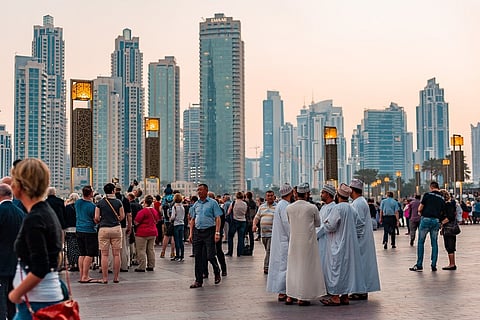

In a major overhaul of its Islamic laws, the United Arab Emirates has reportedly relaxed a raft of restrictions pertaining to one’s personal freedom in the country. Some of the highlights in the reforms to its legal system include harsh punishment for harassing and assaulting women, decriminalising suicide and alcohol consumption and allowing cohabitation of unmarried couples, reported The National, a private English newspaper in UAE.
On Saturday, the UAE government approved the amendments to some of the provisions in the Personal Status Law, the Civil Transactions Law, the Penal Code and the Criminal Procedure Law, “within the framework of efforts to develop the legislative environment in a country, and to ensure compatibility with multiculturalism”.
One of the significant reforms pertains to protecting the rights of women. By amending the Penal Code and Criminal Procedural law, the UAE government has repealed the article that gives a reduced or lenient sentencing in what is called as "honour crimes". Under this widely criticised tribal custom, women are brutally assaulted, and even murdered, by the family members for promiscuity, extra-marital affairs or for disobeying the religious and cultural mores. In such instances, the male members of the woman’s family generally escape punishment or get a lighter sentence under the guise of “protecting a woman’s honour”. Under the new reform, men will be awarded the same punishment for any kind of assault.
تتيح التعديلات المجال لغير المواطنين اختيار القوانين التي تُطبق على تصرفاتهم في شؤون الميراث والتركات في قانون الأحوال الشخصية، وترفع التجريم عن الأفعال التي لا تضر بالغير في قانون العقوبات. #حكومة_الإمارات
— UAEGov (@uaegov) November 7, 2020
Harassing a woman or stalking her will also be met with harsh punishment. The government also reportedly recognised that men, too, could be victims of harassment. Raping a minor or a person with mental illness will be executed, reported The National.
Suicide or attempt to suicide has been decriminalised. The person would be ensured mental-health support by the police or the court. Earlier, a person who survived the suicide would be prosecuted. Abetment to suicide or providing assistance to take another person’s life will face jail.
Individuals who help persons in an emergency health situation will not be punished, reported The National. Earlier, those who provided aid to a person in need, either by administering first aid or CPR, were held accountable for death or injury of that person.
Alcohol consumption and its possession without an individual licence has been decriminalised. Although several hotels have licenses where people could enjoy a drink, as per the earlier rules an individual needed a license to consume liquor in their homes. The licence was mandatory to purchase or transport alcohol. Abu Dhabi ended this system in September. Persons who drink, possess or sell alcoholic beverages, without an alcohol licence, will not face any penalties. However, the person must be 21 years and above, and must be consumed in private or authorised places. The new law will also apply to citizens of the UAE.
In some relief to unmarried couples, cohabitation will no longer be considered a crime. Although officials usually ignore such practices among unmarried couples or unrelated individuals, the new reform will give them legal immunity.
In a country where expatriates outnumber citizens nearly nine to one, the amendments will permit foreigners to avoid Islamic Shariah courts on issues like marriage, divorce and inheritance. The amendments to the Personal Status and the Civil Transactions laws will also allow non-citizens to choose the law relating to issues such as inheritance.
As far as the family law cases involving expatriates are concerned, The National reported that the laws of the person's country of origin can be used for divorces and inheritance, and that the Islamic laws would be rarely applied.
According to Isabel Debre of the Associated Press, the broadening of personal freedoms reflects the changing profile of a country that has sought to bill itself as a skyscraper-studded destination for Western tourists, fortune-seekers and businesses despite its legal system based on a hard-line interpretation of Islamic law. The changes also reflect the efforts of the Emirates' rulers to keep pace with a rapidly changing society at home.
The announcement also follows a historic US-brokered deal to normalise relations between the UAE and Israel, which is expected to bring an influx of Israeli tourists and investment.
The reforms come as the UAE gets ready to host the high-stakes World Expo. The event is planned to bring a flurry of commercial activity and some 25 million visitors to the country, after it was pushed back a year because of the coronavirus pandemic.
(With inputs from PTI)